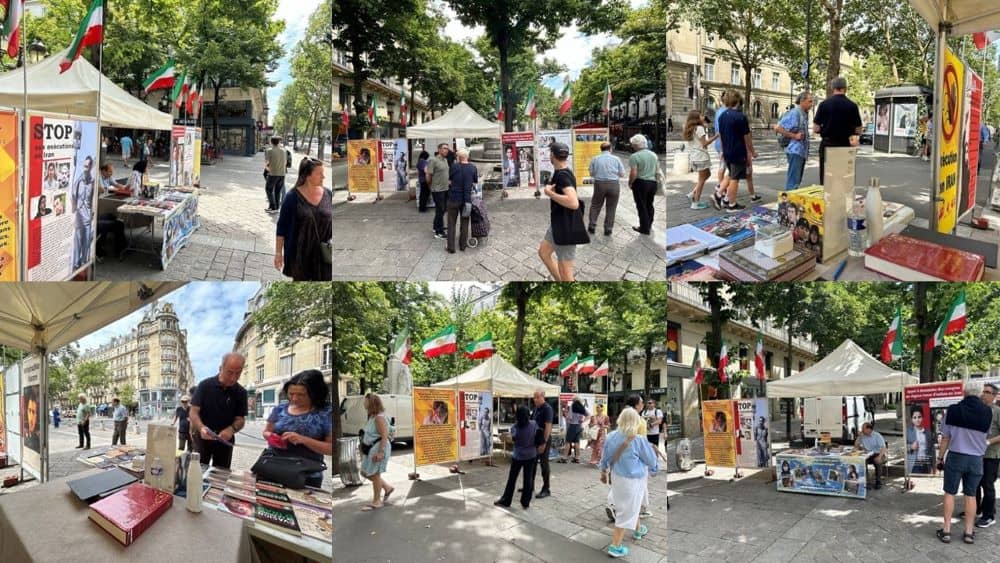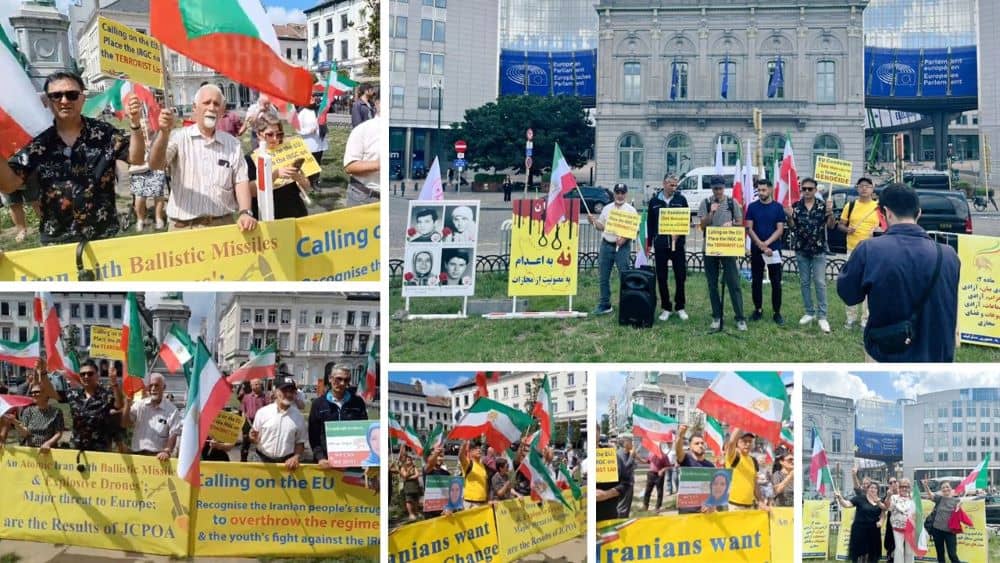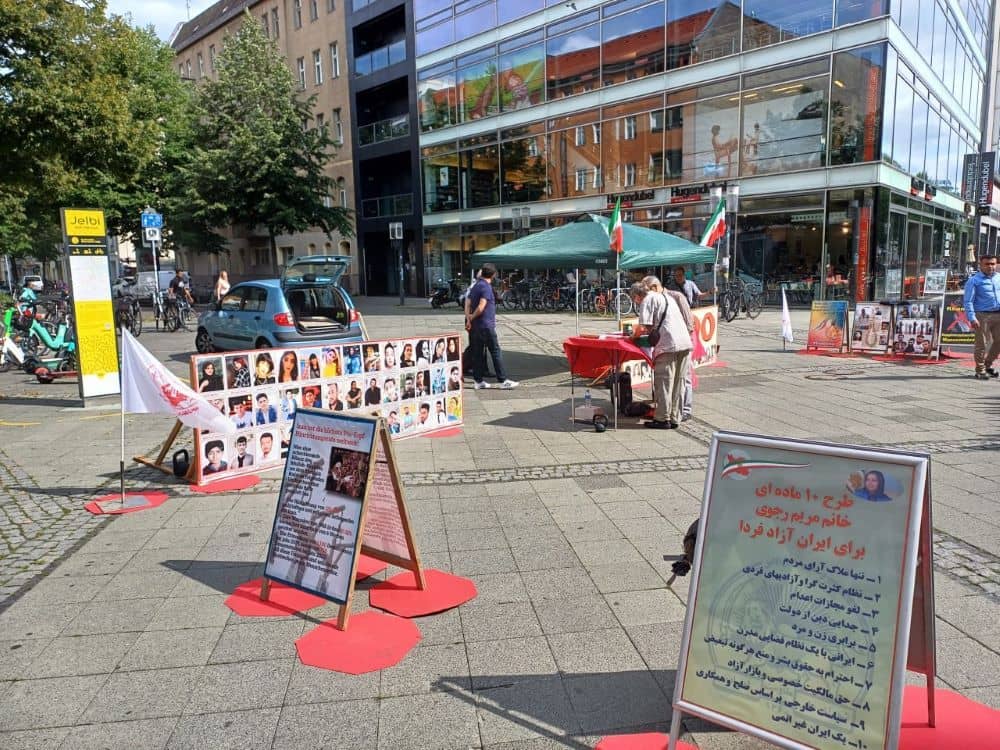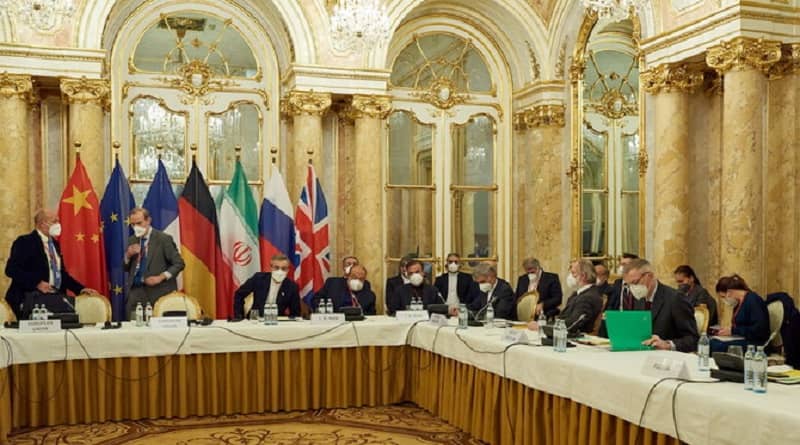
Up until Monday, January 10, 2022, the Iranian regime was continuing to give off the impression that it was in control of the 2015 Iran nuclear deal negotiations with six world powers in regards with its nuclear program. The talks have practically been on ‘life support’ since the United States’ then-President Donald Trump re-imposed economic sanctions on the regime and halted his country’s participation in 2018.
However, the regime’s Foreign Ministry spokesperson, Saeed Khatibzadeh has rejected the assumption that the talks in Vienna may result in an interim agreement to prevent the complete collapse of the nuclear deal, while the regime continues to fail to restore its compliance with it.
The National Council of Resistance of Iran (NCRI) said, “Although Britain, France, Germany, Russia, and China all remained as participants in the Joint Comprehensive Plan of Action, Tehran soon began violating its commitments and eventually advanced the country’s nuclear program to the point of exceeding previous high levels of uranium enrichment.”
The regime also began installing new advanced centrifuges, with the sole purpose to greatly accelerate the process of enriching uranium up to weapons grade material. They have also produced small quantities of uranium metal, a material whose only use is as a component of nuclear warheads.
The news of the regime’s advances has helped to fuel the public concern of Iran’s nuclear weapons capability which, in turn, has prompted officials from the Britain, France, Germany and the U.S. to warn that time was running out for the Vienna negotiations. Some officials have even put forward the option of military action to deal with the regime if they failed to step back from their demands for sanctions relief.
As of yet, there it barely any evidence that the regime’s approach to the negotiations has changed, but the other parties are continuing to hope for a breakthrough as they show interest to extend the process.
The latest round of negotiations is the second to be held in Vienna since November 2021, following a five-month break that was initiated by the regime as they installed a new president, Ebrahim Raisi.
The NCRI said, “So far, his administration has been saying that it expected the latest talks to focus solely on one issue: the lifting of sanctions. However, in clarifying his account of recent progress, the Foreign Ministry spokesman identified ‘nuclear issues’ as one of the topics of discussion.”
Of the other issues that Khatibzadeh mentioned during his statement, all three were simply variations of the regime’s main demand. In regards to the progress made toward removing sanctions, he described this as “the result of the efforts made by all parties to reach a stable agreement.”
The regime’s Foreign Minister, Hossein Amir-Abdollahian commented on the attitudes of the negotiating member states, mainly crediting “the initiatives of the Iranian side.” He accused the French negotiators of playing “the role of the bad cop” in previous rounds of negotiations, and has boasted that the US was now accepting the “realities” of the situation during the talks, implying that the regime now has greater leverage in the negotiations.
The NCRI said, “Signs of that confidence appeared last week when officials of the Iranian regime demanded that South Korea release frozen assets, regardless of the status of US sanctions and the outcome of the Vienna talks.”
Last week, an announcement from the regime laid out its wish that current and former U.S. officials, along with former president Donald Trump, will face trial in an ‘Islamic court’ for their roles in the assassination of the regime’s top terrorist commander, Qassem Soleimani in January 2020. Pre-emptive of this expectation, Iranian authorities announced on Monday that they were placing their own sanctions on over 50 Americans.
In response to the announcement, the U.S. accused the regime of ‘threats and provocations’, with the White House National Security Advisor, Jake Sullivan, stating that the regime would face “severe consequences” for any actions against the individuals that they have sanctioned.

